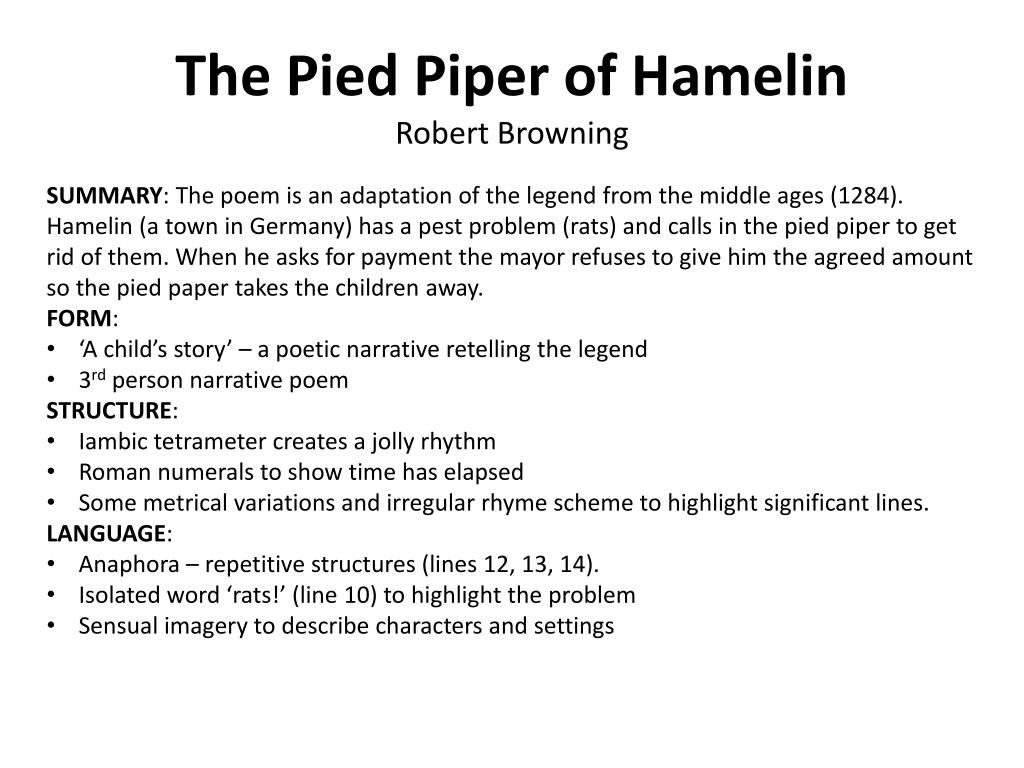
The speakers in his poems are often musicians or painters whose work functions as a metaphor for poetry. His poems are known for their irony, characterization, dark humor, social commentary, historical settings, and challenging vocabulary and syntax. Robert Browning (1812-1889) was an English poet and playwright whose mastery of dramatic verse, and in particular the dramatic monologue, made him one of the foremost Victorian poets. Using the Verstegan/Wanley version of the tale and adopting the 1376 date, Browning's verse retelling is notable for its humor, wordplay, and jingling rhymes. This version of the story spread as folklore and has also appeared in the writings of Johann Wolfgang von Goethe, the Brothers Grimm and Robert Browning, among others. When the citizens refuse to pay for this service, he retaliates by turning his power that he put in his instrument on their children, leading them away as he had the rats. In the 16th century the story was expanded into a full narrative, in which the piper is a rat-catcher hired by the town to lure rats away with his magic pipe.

The earliest references describe a piper, dressed in multicolored ("pied") clothing, leading the kids away from the town never to return. "The Pied Piper of Hamelin" is the subject of a legend concerning the disappearance or death of a great number of kids from the town of Hamelin (Hameln), Lower Saxony, Germany, in the Middle Ages. "About this title" may belong to another edition of this title.Sinopsis de THE PIED PIPER OF HAMELIN (WITH ORIGINAL ILLUSTRATIONS) He them returned to England to live with his only sister Sarianna, but later he went back to Italy, where he died at the Rezzonico Palace in Venice. In 1846 Robert Browning married a fellow poet, Elizabeth Barrett, eloping with her to Italy where they lived until Elizabeth's death in 1861. One of Browning’s longest poem, it tells of a story of the town of Hamelin that was over run with rats (if you don’t want the plot to the poem, skip this paragraph). After its appearance in print in 1842, it became a children's classic, attracting new illustrators in every generation. Robert Browning’s poem, ‘The Pied Piper of Hamelin’ is a children’s story in the form of a poem. When Macready's eldest son Willie was ill in bed, Browning wrote for the boy's entertainment the poem of The Pied Piper, a story he remembered from his own childhood.

His dramatic poem Paracelsus, published in 1835, established his reputation and brought him the friendship of the actor-manager William Macready. The strongest influence on his education were the books in his father's extensive library, particularly the writings of Byron and Shelley.

Robert Browning (1812-1889) was born in Camberwell, London, the son of a clerk in the Bank of England.


 0 kommentar(er)
0 kommentar(er)
